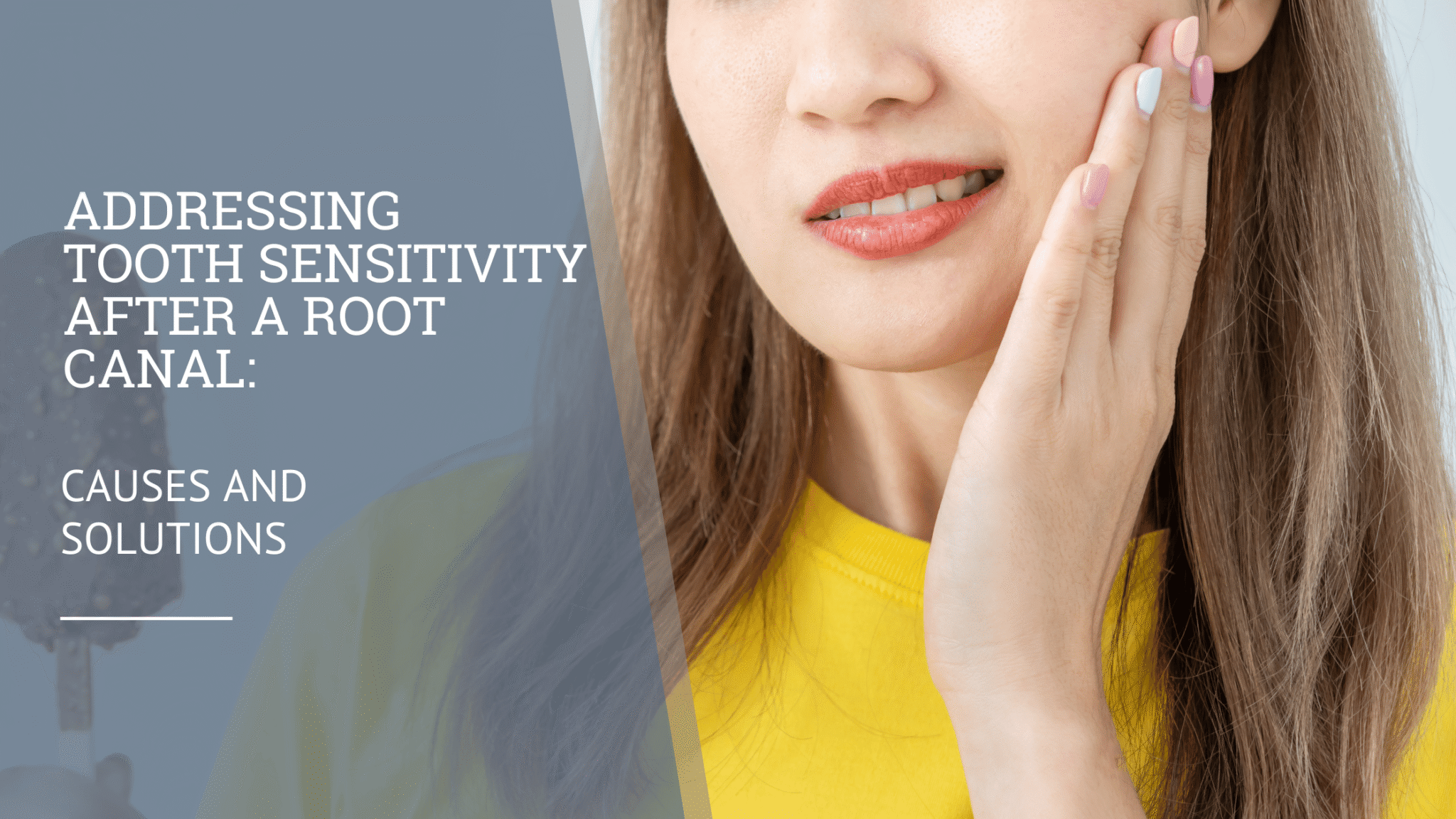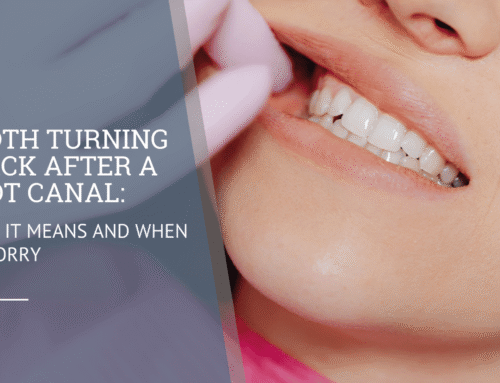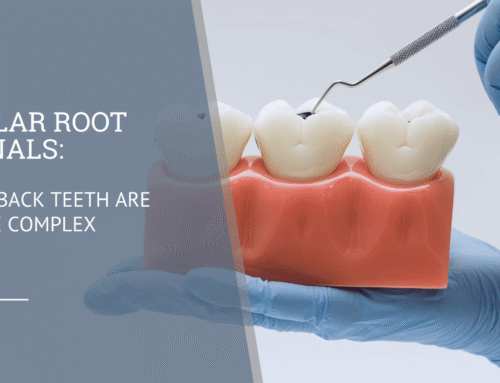If you’ve recently had a root canal, you might notice a bit of tooth sensitivity afterward. Don’t worry—it’s usually a sign your tooth is healing, not a cause for alarm. At Eastern Idaho Endodontics, we understand that even mild discomfort can make you wonder if something went wrong. Let’s explore the causes of tooth sensitivity after a root canal and share practical solutions to help you feel comfortable again.
What to Expect After a Root Canal
A root canal removes infected tissue from inside the tooth, cleans the canal, and seals it to prevent future infection. After this process, it’s completely normal for the tooth and surrounding area to feel sensitive for a few days. Think of it like your body’s way of adjusting after a deep cleaning inside your tooth.
Why Tooth Sensitivity Happens
Even though the nerve inside your tooth is removed during a root canal, the tissues around the tooth (including the ligaments and bone) are still very much alive. These tissues can become temporarily inflamed from the procedure itself, leading to mild sensitivity—especially when you bite down or eat something hot or cold.
Common Causes of Post-Root Canal Sensitivity
1. Temporary Inflammation
After a root canal, minor swelling or inflammation is common. The dental instruments used to clean and shape the canal can slightly irritate the surrounding tissue. This tenderness usually fades within a few days to a week.
2. High Bite or Uneven Pressure
If your tooth feels sore when you bite down, your bite might be slightly uneven. Sometimes the filling or crown sits just a bit too high. A quick adjustment from your endodontist can relieve pressure and reduce sensitivity almost instantly.
3. Surrounding Tissue Healing
Your jawbone and gum tissue also take part in the healing process. As they recover, they can feel tender or sensitive—especially if the infection before treatment was severe.
4. Minor Nerve Irritation
Even though the tooth’s nerve is gone, the surrounding nerves can send pain signals for a short time. It’s similar to how your skin feels tender after a bruise heals.
When Tooth Sensitivity Is Not Normal
Mild discomfort is normal, but sharp, throbbing, or worsening pain after several days may indicate a complication. If you notice swelling, prolonged sensitivity to hot or cold, or discomfort that worsens instead of improves, contact Eastern Idaho Endodontics right away. Persistent pain could mean there’s an infection or inflammation in the surrounding tissue that needs further care.
At-Home Solutions for Mild Sensitivity
-
Use desensitizing toothpaste: Brands made for sensitive teeth can help calm nerve endings.
-
Avoid very hot or cold foods: Give your tooth time to adjust.
-
Stick to soft foods: Mashed potatoes, yogurt, and smoothies are great early recovery options.
-
Take over-the-counter pain relievers: Ibuprofen or acetaminophen can help with mild inflammation.
-
Maintain gentle oral hygiene: Brush carefully around the treated tooth to avoid irritation.
Professional Treatments for Ongoing Pain
If the sensitivity doesn’t improve, your dentist or endodontist may:
-
Adjust your bite to remove excess pressure.
-
Re-evaluate the root canal for any remaining infection.
-
Replace or refine the crown or filling if it’s contributing to discomfort.
Foods and Habits to Avoid During Recovery
To help your tooth heal faster:
-
Avoid chewing hard foods like nuts or ice on the treated side.
-
Skip sticky candies that could pull at your temporary crown.
-
Minimize acidic or sugary drinks, which can irritate healing tissues.
How Long Does Sensitivity Last After a Root Canal?
Most patients notice sensitivity for a few days to two weeks. If discomfort lasts longer than that, it’s worth scheduling a follow-up. Healing time varies depending on the complexity of your case and how severe the infection was before treatment.
Preventing Future Sensitivity
Once your tooth is fully restored with a crown, it’s well-protected against further infection or irritation. To keep sensitivity from returning:
-
Maintain good oral hygiene.
-
Schedule regular dental check-ups.
-
Avoid grinding your teeth—ask about a nightguard if needed.
When to Call Your Endodontist
Contact Eastern Idaho Endodontics if you experience:
-
Persistent or worsening sensitivity beyond two weeks
-
Swelling in the gums or face
-
Pain when chewing that doesn’t go away
-
Any signs of infection such as discharge or fever
Our team can quickly determine the cause and help you find relief.
Final Thoughts
Feeling tooth sensitivity after a root canal is common—and in most cases, it’s simply your body’s way of healing. However, ongoing pain isn’t something you should ignore. The specialists at Eastern Idaho Endodontics are here to ensure your recovery goes smoothly, your comfort returns quickly, and your smile stays healthy for years to come.
FAQs
1. How long should tooth sensitivity last after a root canal?
Usually a few days to two weeks. If it lasts longer, it’s best to schedule a check-up.
2. Can I brush my teeth after a root canal?
Yes—but do it gently around the treated tooth, especially if you have a temporary crown.
3. Why does my tooth hurt when I bite down after a root canal?
It may be due to inflammation or a high bite. A small adjustment by your endodontist often solves the problem.
4. Is it normal to have cold sensitivity after a root canal?
Mild cold sensitivity is common for a few days. Persistent sensitivity might need further evaluation.
5. How can I speed up healing after a root canal?
Avoid hard foods, follow your dentist’s instructions, and take any prescribed medication as directed.




